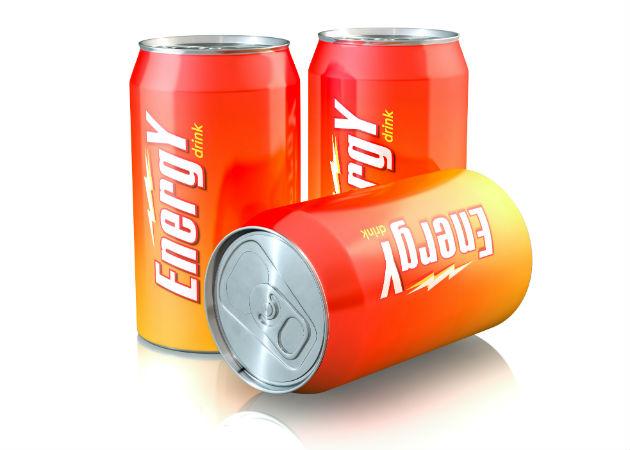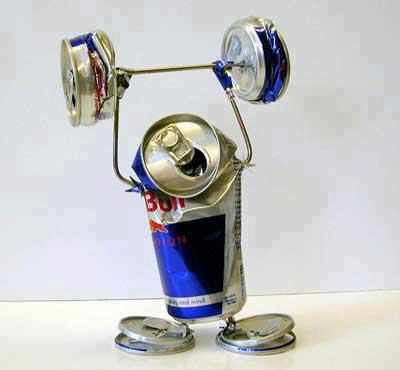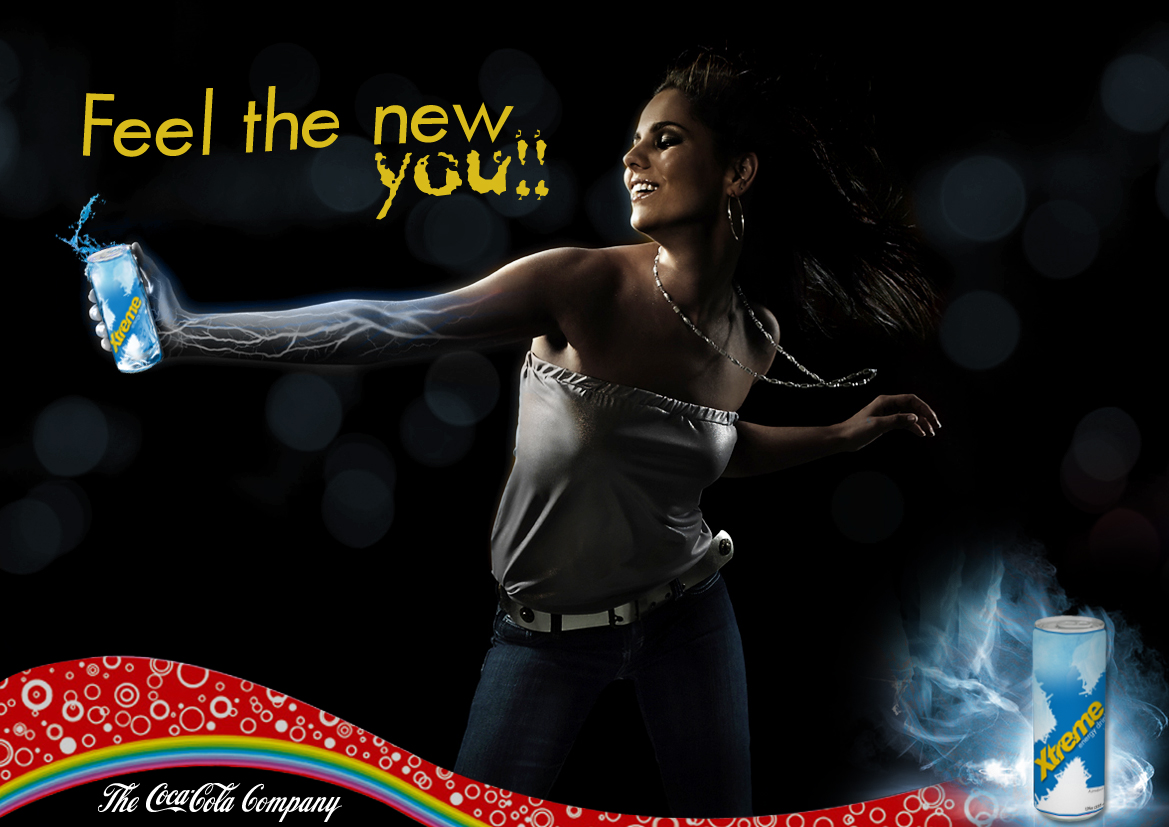Energy drinks
 I don’t think a critical blog post about the “dangers” of energy drinks will scare away a hard core bodybuilder using a stack of AAS, slin and GH. Not to mention the pain killers and other ancillaries. I also posted a few times about the scaremongering of the authorities and the medical community. But this is different. This is a blog post not only written for the hard-core or advanced bodybuilder, but also for the younger members of our forum.
I don’t think a critical blog post about the “dangers” of energy drinks will scare away a hard core bodybuilder using a stack of AAS, slin and GH. Not to mention the pain killers and other ancillaries. I also posted a few times about the scaremongering of the authorities and the medical community. But this is different. This is a blog post not only written for the hard-core or advanced bodybuilder, but also for the younger members of our forum.
The more advanced bodybuilders will use stronger means to reach their goals such as the ECA-stack or Clenbuterol and T3 to cut or get energy. And most of the guys I know have some coffee before hitting the gym. In this light an energy drink could do also.
Then why this blog post? Energy drinks can be a benefit if consumed with common sense, but it turns out that these nice colorful cans are addiction forming. Just like many people who practically “live“ on coffee, nowadays many people start to do the same with these energy drinks. I know that relatively the dangers of energy drinks are nothing comparable to other compounds people abuse.
But let’s look at it at a different angle. Some people use AAS and other compounds in a cycle to gain extra muscle mass. If done on a knowledgeable cycle and followed by a proper PCT, then health problems should be controllable . We all know that if we follow the hard-core or pro protocol, which means, year round usage and much higher doses and much more different means to counteract all the injuries and pain of pushing your body to the limit, will do much more damage. It’s true for most compounds that exert a certain effect in the body, if it is alcohol, recreational drugs, anabolic steroids or caffeine , one need to increase the dosage as the body builds up tolerance to the chemical. Therefore, it takes more and more to produce the desired effects.
If some member mentions on the board that he wants to take oral steroid, many other members warn him and tell him to take liver protectors like Milk Thistle. If you want to do an Oral Only Cycle, I always advise to limit the time of the cycling to max 12 weeks , DON’T use recreational drugs, prescription medicine, alcohol, try not to smoke etc. Because it’s not wise to stack all unhealthy habits.
 But what about your heart? If you do take risks, then take calculated risks. We all know about the death of professional body builders, it is plastered all over the web. But way more of them suffer from lifetime health issues, they ruined their kidneys, liver or heart. And that are only the professional bodybuilders, wrestlers, athletes etc. But many others, unknown users suffer the same. Using roids is hard on all our organs, no need to deny that, Eating huge amounts of foods and proteins also is. But they bring us all those hot desired muscles.
But what about your heart? If you do take risks, then take calculated risks. We all know about the death of professional body builders, it is plastered all over the web. But way more of them suffer from lifetime health issues, they ruined their kidneys, liver or heart. And that are only the professional bodybuilders, wrestlers, athletes etc. But many others, unknown users suffer the same. Using roids is hard on all our organs, no need to deny that, Eating huge amounts of foods and proteins also is. But they bring us all those hot desired muscles.
Combining these unhealthy life-style with another unhealthy habit eg drinking energy shots is stupid now that new research indicates that all these caffeine combined with taurine probably forms a new chemical that may damage your heart. It’s shown to have a bad influence on your blood pressure and heart beat also.
Energy drinks these days are plentiful in number. Some of the most commonly known are Red Bull, Monster, Jolt, Rockstar, Full Throttle, to name a few. In fact, there are so many to choose from it's hard to know if they are really any good at all, and to top it all off, they sell like hotcakes, some more than others. It's not that their "great taste" makes them so popular either. Most of them are not that pleasing in taste at all until you become accustomed. In addition, they are also expensive. So, just what is appealing about the energy drink in the fitness world and are they really any good?
Myth forming advertisements
It's the same as in anything advertised; the more outrageous the claim of what it will do for you, the more people are interested in buying it. People are wild about the 'quick fix' and will do just about anything to experience it. What's interesting about energy drinks (sports drinks) is that many manufacturers will link their claims to what grabs the attention of the sports minded individual. Usually, that is muscle, strength, stamina. The claims made by these manufacturers are mainly focused on the same things, ability to increase muscle and bulk, increase strength and keep you going for hours on end. If you believe the marketing, these added ingredients have magical powers. Detoxifying agent, no crash later, stimulates metabolism, improves overall wellness… these are just a few of the health claims made by the company’s manufacturing energy drinks. However, a 2012 review of the scientific literature published in Nutrition Reviews evaluated the various ingredients in energy drinks and found no evidence to support these type claims. Only the ingredients providing caffeine (guarana) and the sugar (carbohydrates) can be backed by scientific research.
 The results of all these Myth forming advertisements are obvious. This fast-growing beverage category now reaches more than $10 billion annually. Unfortunately, kids and teenagers are among the most likely consumers of these beverages. Energy drinks are heavily-marketed to young people, who are less likely to be aware of the possible dangers of these beverages.
The results of all these Myth forming advertisements are obvious. This fast-growing beverage category now reaches more than $10 billion annually. Unfortunately, kids and teenagers are among the most likely consumers of these beverages. Energy drinks are heavily-marketed to young people, who are less likely to be aware of the possible dangers of these beverages.
Energy drinks are merely soft drinks but specifically designed to give you energy. In order to do this, generally, they include excessive levels of caffeine, B-vitamins and herbal ingredients,such as Guarana, Ginseng, Carnitine, Creatine, Gingko Biloba, etc. More so than the sugar or sugar substitutes in these drinks, the main ingredient in them all is caffeine which enhances the mood, alertness and focus. Just eight ounces of an energy drink will usually have 75 to 100 mg of caffeine.
There are some claims that may reign true of some of these drinks however. Many bodybuilders report several advantages of the usage of energy drinks which include reduced muscle soreness, faster recovery and reduced burning sensations after an intense workout. Also, the type of sugar used in some of the energy drinks is complex and produces the same effects as complex carbs, such as brown rice, oatmeal, etc. What this means is the body will not store unnecessary fat and that the sugar will slowly break down to be properly absorbed and not contained as fat. Other known benefits include cell protection through the presence of antioxidants.
When choosing an energy drink, be sure to read the label for yourself to see what is in it and what it claims the drink provides. Most energy drinks don’t include this information on the label. Caffeine, a substance that is generally recognized as safe is not considered to be a food additive, and can therefore be added to foods without FDA approval. Even when brands do list caffeine content, that information is questionable: Consumer Reports found that many drinks contain more caffeine than listed. Energy drinks are not for everyone and does not affect everyone in the same way. Most of them will produce side effects, such as jitters, rapid heartbeat, dizziness, nervousness, anxiety, restlessness, and an incredible high as if you've taken a drug. Some of these drinks can even bring down your mood when they leave your system. But who really knows how much caffeine is in that bottle or can, and we often don't know exactly what else is in there, either.
But first of all, you don’t need high-priced, caffeine-packed superdrinks to achieve that effect. A milligram of caffeine is a milligram of caffeine. But wait, what about the nifty additives in Full Throttle and Monster and Rockstar? The taurine and… stuff. Taurine is an amino acid found in lots of foods. Good for you in the abstract. Manufacturers also commonly add sugar (excess calories), ginseng (at very low levels), and bitter orange (structurally similar to norepinephrine).

However, the truly interesting addition is guarana, a botanical product from South America. When guarana breaks down, it’s principal byproduct is, yes, caffeine. Guarana seeds contain twice the caffeine found in coffee beans. Three to five grams of guarana provide 250 mg of caffeine. Energy drink manufacturers don’t add that caffeine to the total on the label because—oh wait, that’s right, because makers of energy drinks, unlike makers of soft drinks, don’t have to print the amount of caffeine as dietary information.
Some energy drinks have been banned in a number of countries because of fatal results. Consuming high amounts of these energy drinks at once should be avoided by bodybuilders because of risks associated with excessive caffeine intake.
The decision to use energy drinks or to just stick with plain water is a personal choice. For some, it may produce benefits, for others, it may be an uncomfortable waste of time. The lesson here is caution and being aware of what you ingest into your system. Keep in mind that if a product is abused, even if it is relatively safe when used correctly, taking it to the extreme can be a recipe for disaster.
Studies
Energy Drinks Affect Heart, MRI Scans Show. A small, early study found contraction rate sped up after people downed beverage
After downing the energy drink, experienced a 6 percent increase in their heart contraction rate, said study co-author Dr. Jonas Doerner, a radiology resident in the cardiovascular imaging section at the University of Bonn, in Germany.
It appears that the unique blend of sugar, caffeine and taurine in an energy drink may combine to have an effect on the heart, Doerner said. He and his colleagues tested a second group using a drink containing only caffeine, but those patients did not show a significant increase in heart contractions.
"Maybe the mechanism could be from the taurine, or from the combination of taurine and caffeine," he said.
Because this study was presented at a medical meeting, in December 2013, the data and conclusions should be viewed as preliminary until published in a peer-reviewed journal.
We're still in the early days of learning about the full range of effects of these drinks on physical and mental health, as well as sleep. There is an abundance of research that shows how too much caffeine can affect blood pressure and heart rate, create anxiety, and disrupt sleep.
We know much less about the short- and long-term effects of some of the other ingredients that are often found in energy drinks, including taurine, the vitamins niacin and pyridoxine, and sugars such as inositol. We don’t know the complete health implications of energy drinks. It probably depends on your specific health conditions and the amount you consume. Last year, the US Food and Drug Administration began investigating reports of several deaths linked to the use of these type energy drinks.
If you consume or swallow an upper this will create a desired effect, a peak of energy, followed by a down. This is the moment you are tempted to take another upper. And this the mechanism that will make you addicted.
Ban
Energy drinks are prohibited in: Canada, Australia, Norway, Denmark, Malaysia, Thailand. In France forbidden sold only in pharmacies. Probably other countries will follow their example. But what about the USA?
As emergency rooms fill with energy drink guzzlers and the sales of those drinks skyrocket, one Chicago politician wants to put a stop to it all. In February 2013, Alderman Ed Burke wanted to ban the sale and distribution of highly caffeinated beverages to all consumers, not just minors.
Burke and other politicians across the country are targeting the energy drink industry for what they say is misleading labeling. He says companies label the dangerous drinks as dietary supplements to avoid federal regulation.

Loopholes do exist, however, and the proposed measure wouldn't abolish the sale of all energy drinks. One of Red Bull's top-selling items, its 8.4-ounce can containing 80 milligrams of caffeine, would still be legal to dispense and consume under Burke's ordinance. Likewise, Monster Energy — the drink that allegedly led to the death of a 14-year-old girl last year — would remain on shelves. Its 16-ounce can just makes the cut at 160 milligrams of caffeine. Monster said it believes its products are not responsible for the girl's death.
What, then, does Burke's law actually ban? The bill blocks larger-sized, highly-potent energy drinks from being sold, like Monster Energy's 24-ounce, 240-milligram "Mega Monster"; 5 Hour Energy's "Extra Strength" edition, which contains 207 milligrams of caffeine; Full Throttle's 16-ounce, 200-milligram can
In order to stand out. Some brands are increasing the dosis of active ingredients. Sooner or later, one of the “hardcore” energy drinks is going to wreck it for everyone else.
Stay safe..ronny..
- Login to post comments


